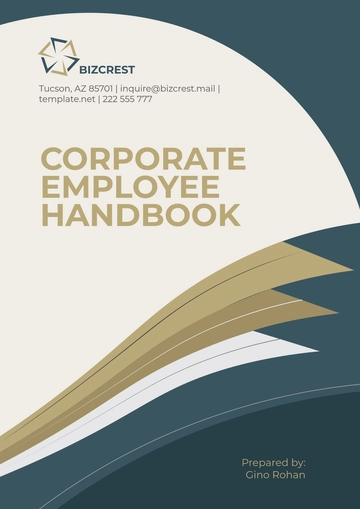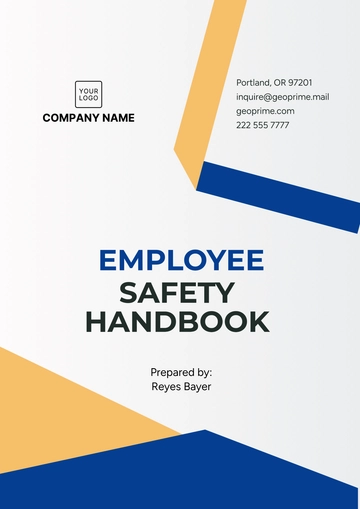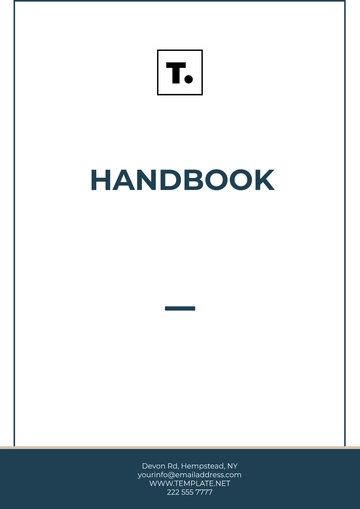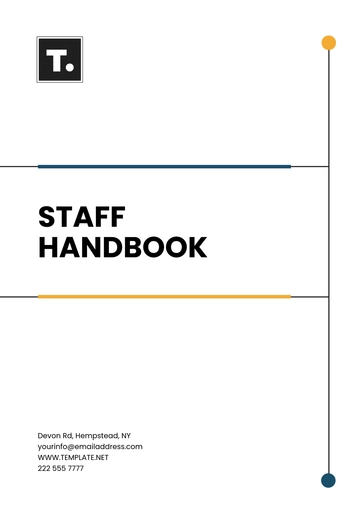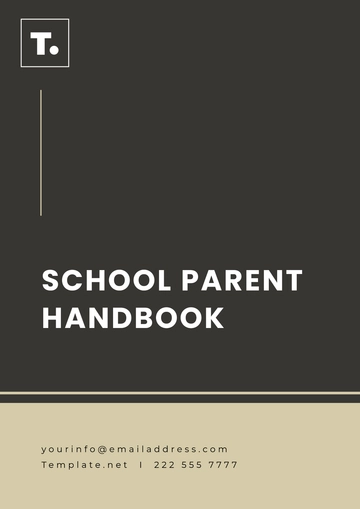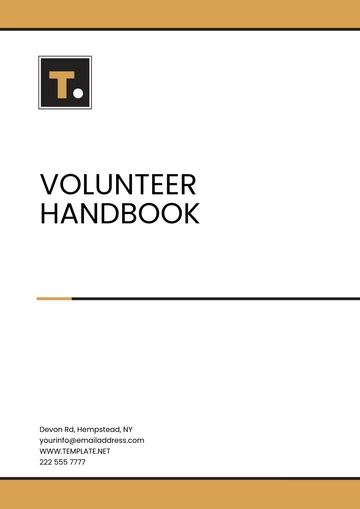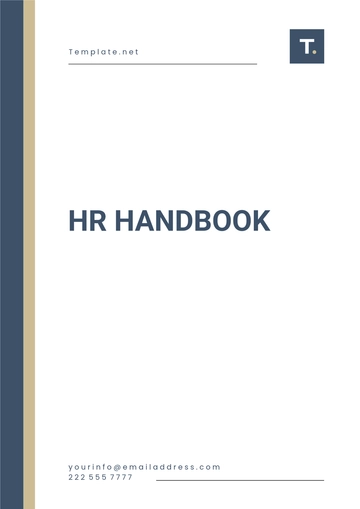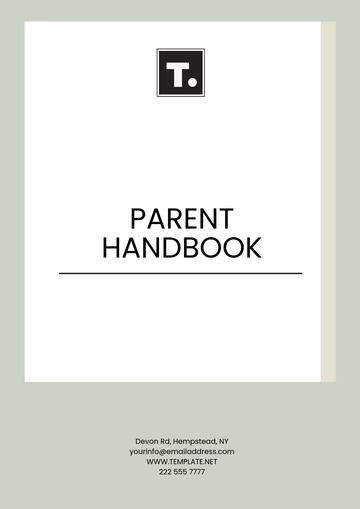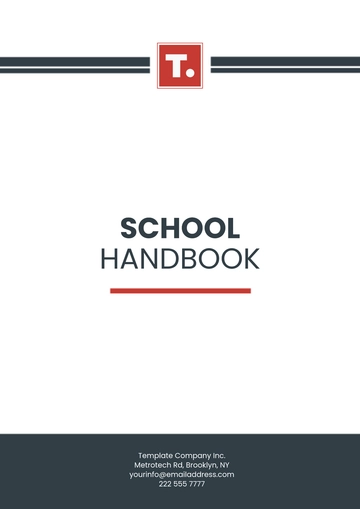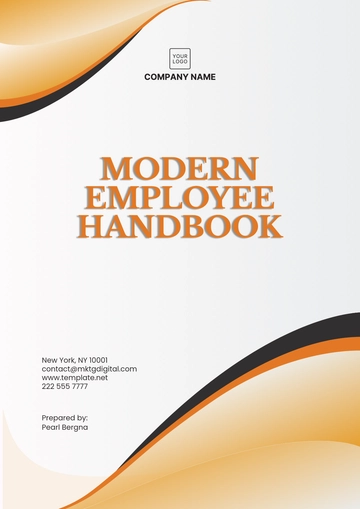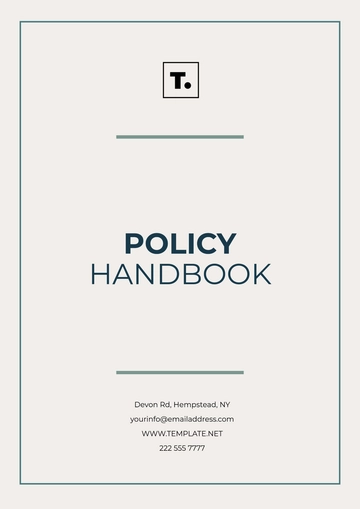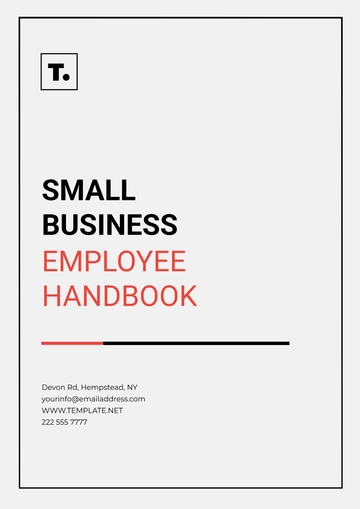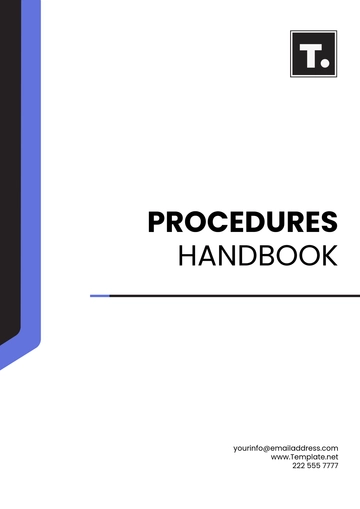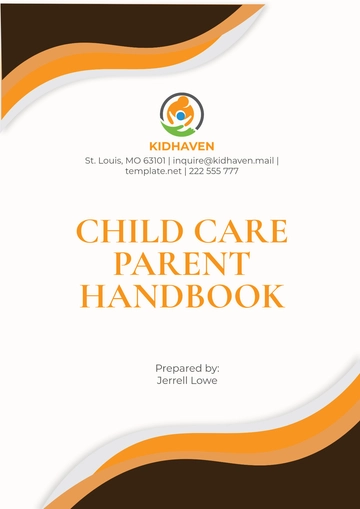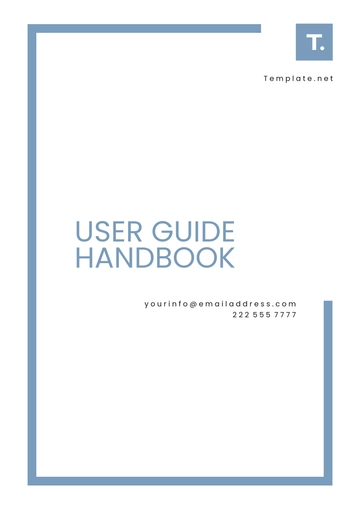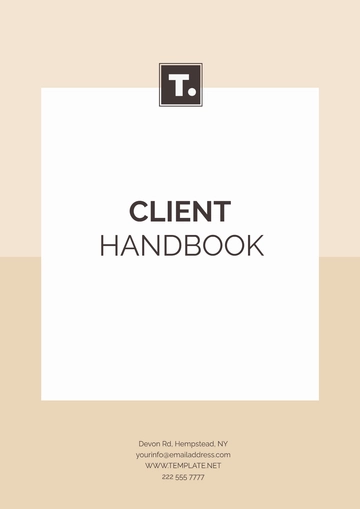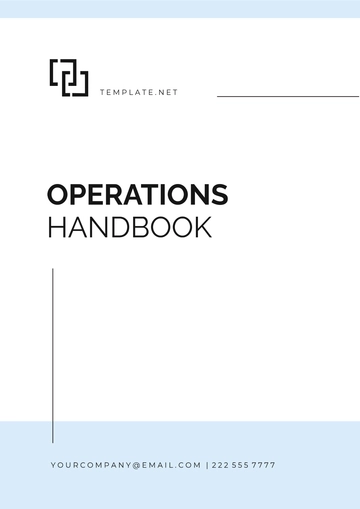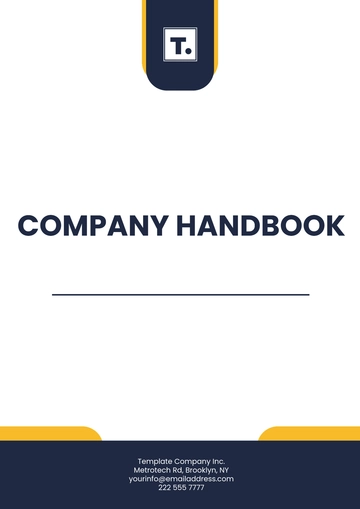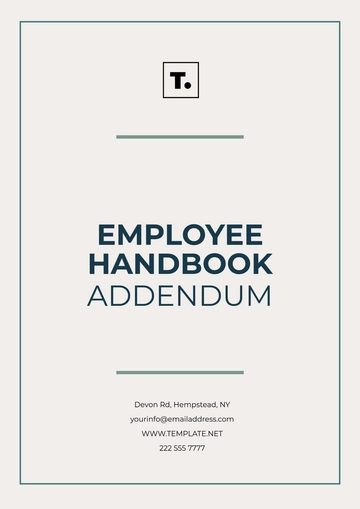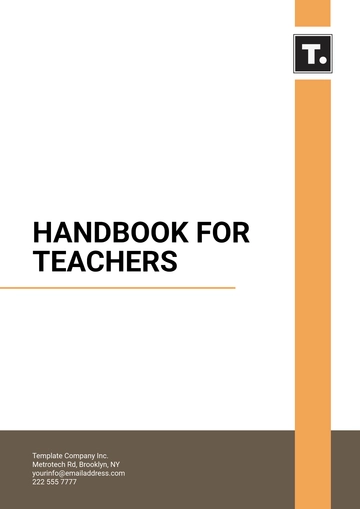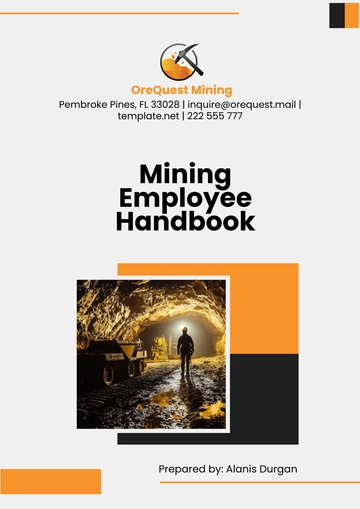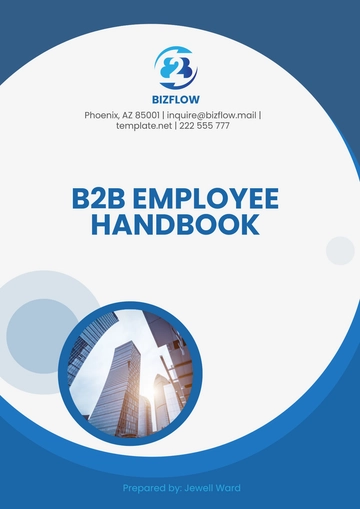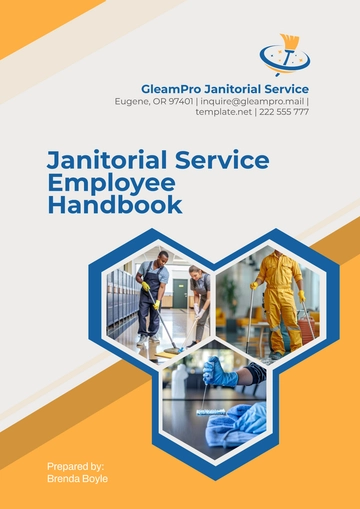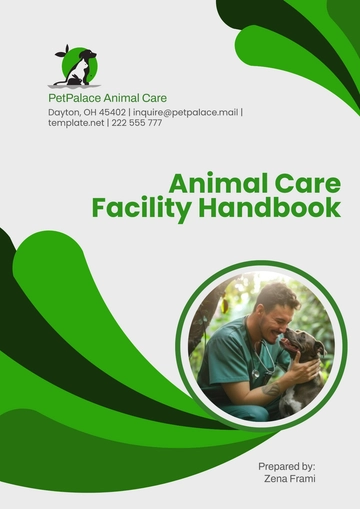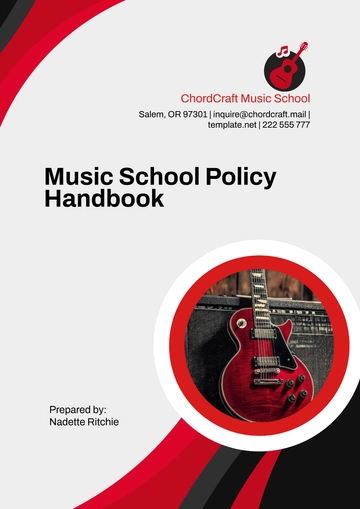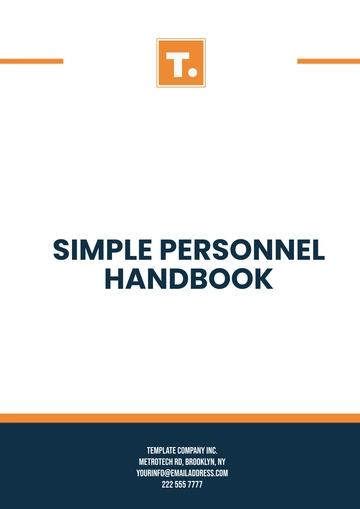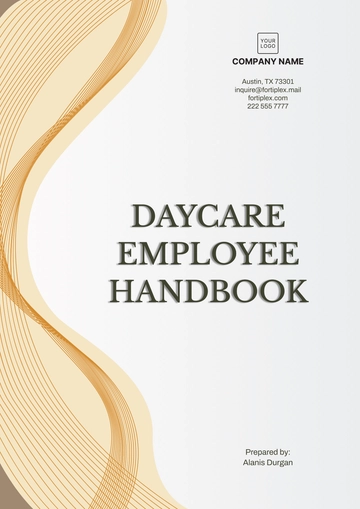Free Whistleblower Policy and Protections Handbook HR
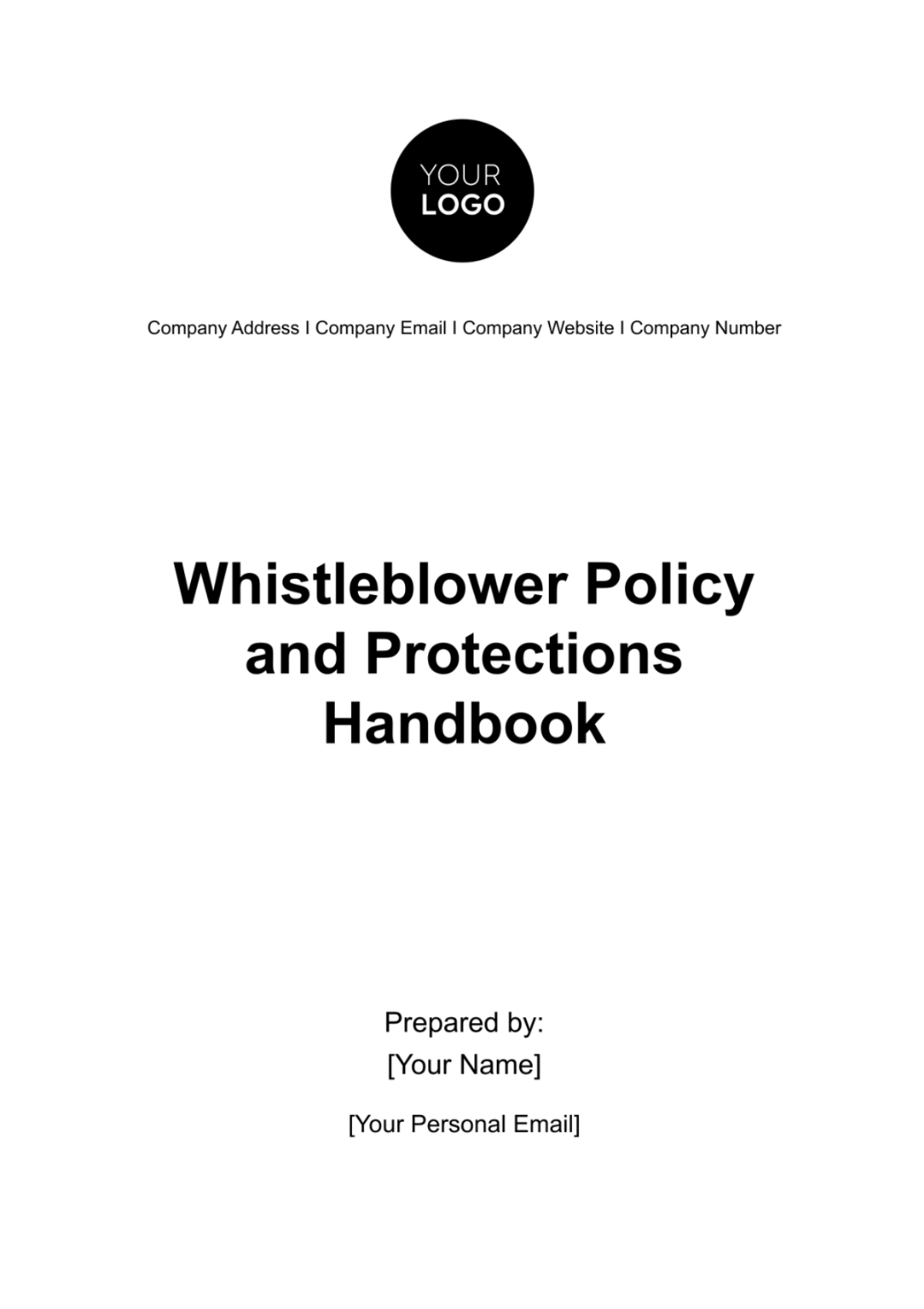
Version 1.0 | Date: [Date]
Table of Contents
Introduction
Purpose
Scope
Definitions
Policy Statement
Reporting Procedures
Protections
Roles and Responsibilities
Consequences of Violations
Review and Amendments
Contact Information
Appendices
1. Introduction
Welcome to the Whistleblower Policy and Protections Handbook of [Your Company Name]. This handbook aims to provide a comprehensive guide for employees, contractors, and stakeholders on how to report unethical or illegal activities and the protections available to whistleblowers. In today's complex business environment, ethical conduct and compliance with the law are non-negotiable standards. This handbook is designed to be a resource for understanding your role and responsibilities in maintaining these standards.
A. Importance of Whistleblowing
Whistleblowing is a critical activity that can help protect the organization's reputation and financial well-being. It can also safeguard the rights and well-being of employees. By providing a clear path for reporting unethical or illegal activities, we aim to prevent any malpractice at an early stage.
B. Ethical Culture
[Your Company Name] is committed to fostering an ethical culture where employees feel empowered to speak up without fear of retaliation. This handbook is a testament to that commitment.
2. Purpose
The purpose of this handbook is to:
Promote a culture of integrity and accountability within the organization.
Provide clear guidelines for reporting unethical or illegal conduct.
Outline the protections and support available to whistleblowers.
A. Objectives
The objectives of this policy include:
Encouraging employees to report concerns about unethical behavior, malpractice, or wrongdoing.
Providing a mechanism for addressing such reports.
Ensuring that whistleblowers are protected from retaliation.
B. Why We Need a Whistleblower Policy
Having a whistleblower policy in place serves as a proactive approach to managing risks. It enables the organization to address issues internally before they escalate into bigger problems that may require legal intervention or result in reputational damage.
3. Scope
This policy applies to all employees, contractors, and stakeholders involved in the operations of [Your Company Name]. This includes full-time and part-time employees, temporary workers, consultants, vendors, and anyone else who conducts business with [Your Company Name].
A. Inclusions
This policy covers but is not limited to:
Financial malpractices
Discrimination and harassment
Health and safety violations
Violation of company policies
Fraud and corruption
B. Exclusions
This policy does not cover personal grievances that do not involve unethical or illegal activities.
4. Definitions
Term | Definition |
Whistleblower | An individual who reports unethical or illegal activities within the organization. |
Retaliation | Any adverse action taken against a whistleblower as a result of their report. |
Confidentiality | The assurance that the identity of the whistleblower will be kept secret to the extent permitted by law. |
Anonymous Reporting | The ability to report an issue without revealing one's identity. |
Protected Disclosure | Information provided by the whistleblower that is protected by law from retaliation. |
A. Additional Terminology
Good Faith: Reporting with a genuine belief that the information disclosed is accurate.
Adverse Action: Any action that would dissuade a reasonable person from making a report, such as demotion, harassment, or termination.
Investigation Team: A team responsible for investigating reports made under this policy.
5. Policy Statement
[Your Company Name] is committed to maintaining the highest standards of ethics and integrity. We encourage all employees and stakeholders to report any unethical or illegal activities without fear of retaliation. This policy outlines the procedures for making such reports and the protections available to whistleblowers.
A. Commitment to Transparency
We believe that transparency is key to maintaining trust among our employees, stakeholders, and the public. Therefore, we are committed to investigating all reports thoroughly and taking appropriate action.
B. Zero Tolerance for Retaliation
[Your Company Name] has a zero-tolerance policy for retaliation against whistleblowers. Any employee found to be engaging in retaliation will be subject to disciplinary action, up to and including termination.
6. Reporting Procedures
A. How to Report
Internal Reporting
Employees are encouraged to report concerns to their immediate supervisor or the Human Resources department. If the issue involves a supervisor, employees should report to the next level of management or directly to Human Resources.
External Reporting
In cases where internal reporting is not feasible or appropriate, employees may report concerns to external authorities, such as regulatory bodies or law enforcement agencies.
B. What to Report
Types of Concerns
Employees should report any of the following:
Financial malpractice or impropriety
Harassment or discrimination
Safety violations
Any other unethical or illegal conduct
Information to Include
When making a report, please provide as much detail as possible, including:
The nature of the concern
The individuals involved
Dates, times, and locations
Any evidence that supports the report
C. Reporting Channels
Email
You can send your report to [Your Company Email].
Phone
You can call [Your Company Number] to make a report.
Anonymous Reporting Portal
For those who wish to remain anonymous, we have an anonymous reporting portal available at [Your Company Website].
D. Reporting Channels
As previously shown, here is the flowchart illustrating the whistleblower reporting process:
Whistleblower Reporting Process

E. Timeframe for Reporting
We encourage employees to report concerns as soon as possible. The sooner an issue is reported, the easier it is to take appropriate action.
F. Investigation Process
Upon receiving a report, the Investigation Team will:
Acknowledge receipt of the report within 5 business days.
Conduct a preliminary review to determine the need for an investigation.
If warranted, initiate a full investigation.
Take appropriate action based on the findings.
Provide feedback to the whistleblower, if possible and appropriate.
7. Protections
A. Confidentiality
[Your Company Name] will maintain the confidentiality of the whistleblower to the extent permitted by law. All reports will be handled discreetly and will only be shared with individuals who need to know in order to conduct an investigation.
B. Non-Retaliation
No employee will face retaliation for reporting in good faith. This includes, but is not limited to, demotion, harassment, or any other form of discrimination.
C. Legal Protections
Whistleblowers are protected under various federal and state laws, which may include protection from termination and other adverse employment actions.
D. Support and Resources
We offer various support mechanisms for whistleblowers, including counseling services and legal advice, to ensure they are protected throughout the reporting and investigation process.
8. Roles and Responsibilities
A. Employees
Report unethical or illegal activities.
Cooperate fully in any investigations.
B. Management
Ensure that this policy is effectively communicated to all employees.
Take appropriate action on receiving a report.
C. Human Resources
Handle reports and investigations in a confidential manner.
Provide support to whistleblowers.
D. Investigation Team
Conduct thorough investigations of all reports.
Recommend appropriate action based on findings.
E. Board of Directors
Oversee the implementation of this policy.
Review and approve any amendments.
9. Consequences of Violations
A. Disciplinary Actions
Violations of this policy may result in disciplinary action, up to and including termination. This applies to both the perpetrators of the unethical or illegal activities and anyone found to be engaging in retaliation against a whistleblower.
B. Legal Consequences
In addition to internal disciplinary actions, individuals involved in illegal activities may be subject to legal consequences, including fines and imprisonment.
10. Review and Amendments
A. Annual Review
This policy will be reviewed annually to ensure it remains effective and relevant.
B. Amendments
Amendments to this policy can be made with the approval of the Board of Directors and will be communicated to all employees.
11. Contact Information
Email: [Your Company Email]
Address: [Your Company Address]
Phone Number: [Your Company Number]
For any questions or clarifications, please contact [Your Email].
12. Appendices
Appendix A: Federal and State Laws Protecting Whistleblowers
This section provides an overview of the federal and state laws that offer protections to whistleblowers.
Appendix B: Contact Information for Regulatory Bodies
A list of regulatory bodies and their contact information for external reporting.
- 100% Customizable, free editor
- Access 1 Million+ Templates, photo’s & graphics
- Download or share as a template
- Click and replace photos, graphics, text, backgrounds
- Resize, crop, AI write & more
- Access advanced editor
This Whistleblower Policy and Protections Handbook HR Template from Template.net offers an editable and customizable document to safeguard your organization's integrity. Molded to perfection, it is editable in our Ai Editor Tool, enabling easy amendments as per your firm's requirements. Navigate through complex policy creation effortlessly and ensure utmost professionalism and compliance. Ignite your HR efficiency with us today.
